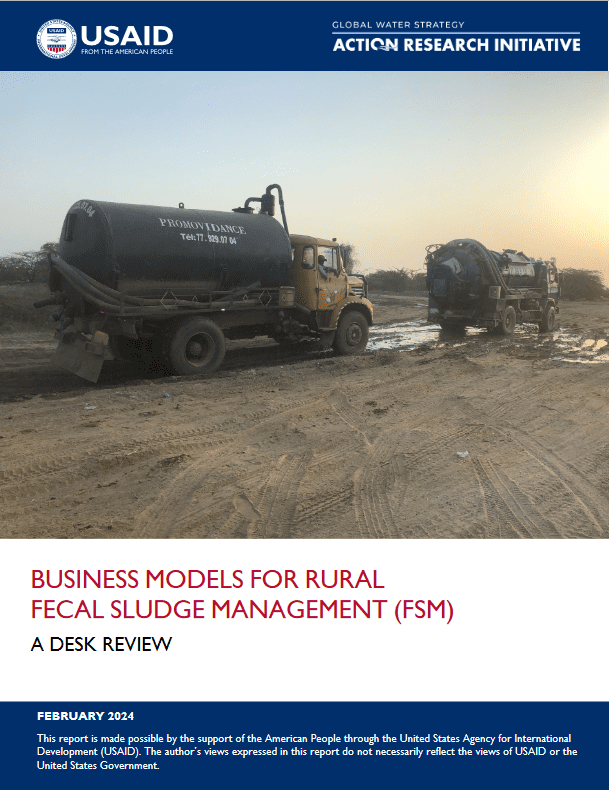Over the last decade, basic sanitation coverage in rural areas of low- and middle-income countries has progressed significantly, especially in Asia. Sustaining those resulting gains in human, environmental, and community health, all while progressing toward targets of Sustainable Development Goal 6, requires safely managing the fecal sludge generated in on-site sanitation systems. However, unsafe emptying practices are common when households empty latrine pits themselves or hire (primarily informal) service providers to manually empty, transport, and dispose of or reuse fecal sludge. Safe fecal sludge management (FSM) services in rural areas are relatively new, and knowledge of business models for those services in rural areas is limited.
FSG conducted a desk review as part of the USAID WASHPaLS #2 project to understand the market for rural fecal sludge services, suitable methods along the sanitation value chain, and potentially viable business models involving the private sector in rural areas.
Top Takeaways
- Demand for paid, recurring FSM services exists and will likely increase. Households, many with new toilets built over the last 10 years, prefer hiring over self-emptying, and often pay more than their stated willingness-to-pay for urgent desludging.
- Rural contexts are more conducive to basic, low-cost treatment methods (e.g., burial, deep row trenching) than to fecal sludge treatment plants (FSTPs) based on current technologies. FSTPs require more capital investment and have a higher risk of closure due to inadequate skills and funding for O&M even in well-resourced urban areas—challenges that are likely exacerbated in rural areas.
- Business models for safe FSM require public body (e.g., local government, utility) participation to service households directly or through public-private partnerships (PPPs) with the private/non-profit sector as contractors or licensees. While some models appear to be profitable in the short term, they may not be taking all other long-term costs into account, risking long-term viability.
- PPP FSM business models apply to a subset of rural contexts where basic treatment methods are possible, and investment and O&M capacity exist. Only a subset of peri-urban areas, close to large cities with available fecal sludge treatment capacity and sludge compatibility, may also offer opportunities to implement PPP FSM models.
- Public bodies can take several measures to broaden the applicability of PPP FSM business models—engage with higher-level governments to plan and finance treatment infrastructure, structure PPPs, and assist with regulatory compliance; incentivize the private sector by grouping several rural settlements and channeling demand to their contractors/licensees; and engage local non-sanitation private sector actors where FSM operators are absent.



